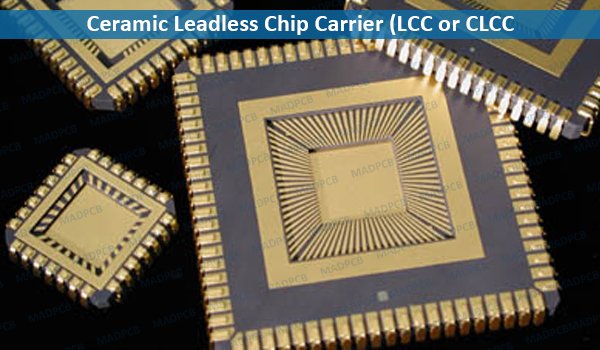What Is A Leadless Chip Carrier?
A Leadless Chip Carrier (LCC or LLCC) is an integrated circuit (IC) package that has no pins/leads for contact. This surface-mount device (SMD) makes use of metal pads at the outer edges to establish connection with the circuit board.
Leadless Chip Carriers continue to be a popular package for surface mount applications. The Leadless Chip Carrier’s low profile and multilayer construction offers short internal electrical traces from the die to the metalized castellations around all sides and on the bottom of the package. These outside contacts are typically .040” or .050” on center. They come in a variety of body sizes. Mount directly to the PC board or use a socket.
Advantages of LCCs
- Low profile, Multi-layer Ceramic Package
- Footprint compatible with CQJB and PLCC
- Solder, Glass or Epoxy Seal
- Castellations instead of external leads
- Low cost solution for surface mount leadless packages
- Hermetic
- Non Magnetic options available
Features
A leadless chip carrier is usually square or rectangular in shape. Unlike other integrated circuit packaging, leadless chip carriers do not establish connection to devices by means of pins, but by means studs or metal pads provided around the periphery of the package. Due to reduction in weight, area and volume, leadless chip carriers are more durable and could withstand more vibration and shock compared to dual-in-line packages.
One of the salient features of a leadless chip carrier is its easy and convenient direct insertion to its socket mounted on the circuit board. It can also easily mount directly on the board. It is a low-cost solution for surface mounting, as it is lightweight and has no metallic external legs or leads. Unlike dual-inline packages (DIPs), no holes are required for leadless chip carriers.
There are a few drawbacks associated with leadless chip carriers. The system is not considered homogeneous when leadless chip carriers are mounted to printed circuit boards (PCBs). Failures of these systems have been common after limited stressing or thermal expansion. Most of these issues can be resolved by selecting the proper printed circuit board (PCB) material.

